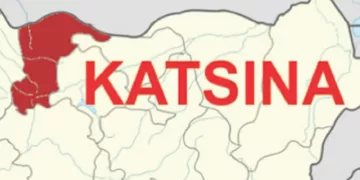The Defence Industries Association of Nigeria (DIAN) has urged the federal government and the armed forces to increase patronage of locally made defence equipment as a way of strengthening security and curbing insurgency.
Secretary-general of DIAN, Engr. Kola Balogun, made the call in an interview on Friday on the sidelines of the African Chiefs of Defence Staff summit in Abuja.
He also called on successive military and political leaderships to ensure continuity of public-private partnership (PPP) agreements in the nation’s defence sector.
Balogun said consistent procurement of locally manufactured military equipment would not only boost the nation’s defence capabilities but also create jobs, reduce idleness among youths and close the recruitment gap for insurgent groups.
“It is an idle mind that provides room for ideological manipulation. Patronage of locally made equipment will engage more citizens productively, reduce unemployment and deny insurgents the chance of luring them into negative ideologies,” he said.
According to him, Nigeria already has policy instruments such as the Local Content Act and Executive Order 5 which are meant to protect indigenous capacity, but there is need for stronger commitment to implementation.
He stressed that increased patronage would expand the local defence industry, foster regional collaboration and pave the way for an African-wide military force that relies on African-made equipment.
“It should no longer be about only Nigerian forces but about African forces, harmonising our capabilities to ensure inter-country exchange of equipment and collective security across the continent,” he added.
Balogun said DIAN would continue to work with relevant agencies to ensure standardisation of products and compliance with best practices, while encouraging more local producers to join the association.
“The more we encourage local capability, the more we reduce insecurity, strengthen our economy and secure our future,” he said.
Balogun said sustainability of PPPs was critical to building investor confidence, developing local capacity and ensuring continuity of defence projects.
“Once a PPP agreement is signed, huge investments and overhead costs are already committed.
“For a successor to truncate such projects is not good enough for the continuation of public-private partnership initiatives,” he said.
The DIAN scribe noted that several defence industries across the continent had raised the same concern during the summit, adding that the chiefs of defence agreed on the need to sustain locally developed capabilities.
According to him, ensuring continuity of such agreements will strengthen Africa’s defence industrial base, reduce reliance on foreign suppliers and promote regional self-reliance.
Balogun commended the summit for providing a platform to discuss challenges and harmonise strategies for African defence industrial development, adding that the resolutions reached would go a long way in reducing political influence in procurement.
“The chiefs of defence have all agreed on the importance of domestication of capabilities.
“With that consensus, presidents will listen to their own defence industries and ensure sustainability, rather than allow political influence to undermine the process,” he added.
He further urged African governments to build trust with local manufacturers by honouring existing agreements, stressing that no country could build a robust defence sector on policy inconsistency.











